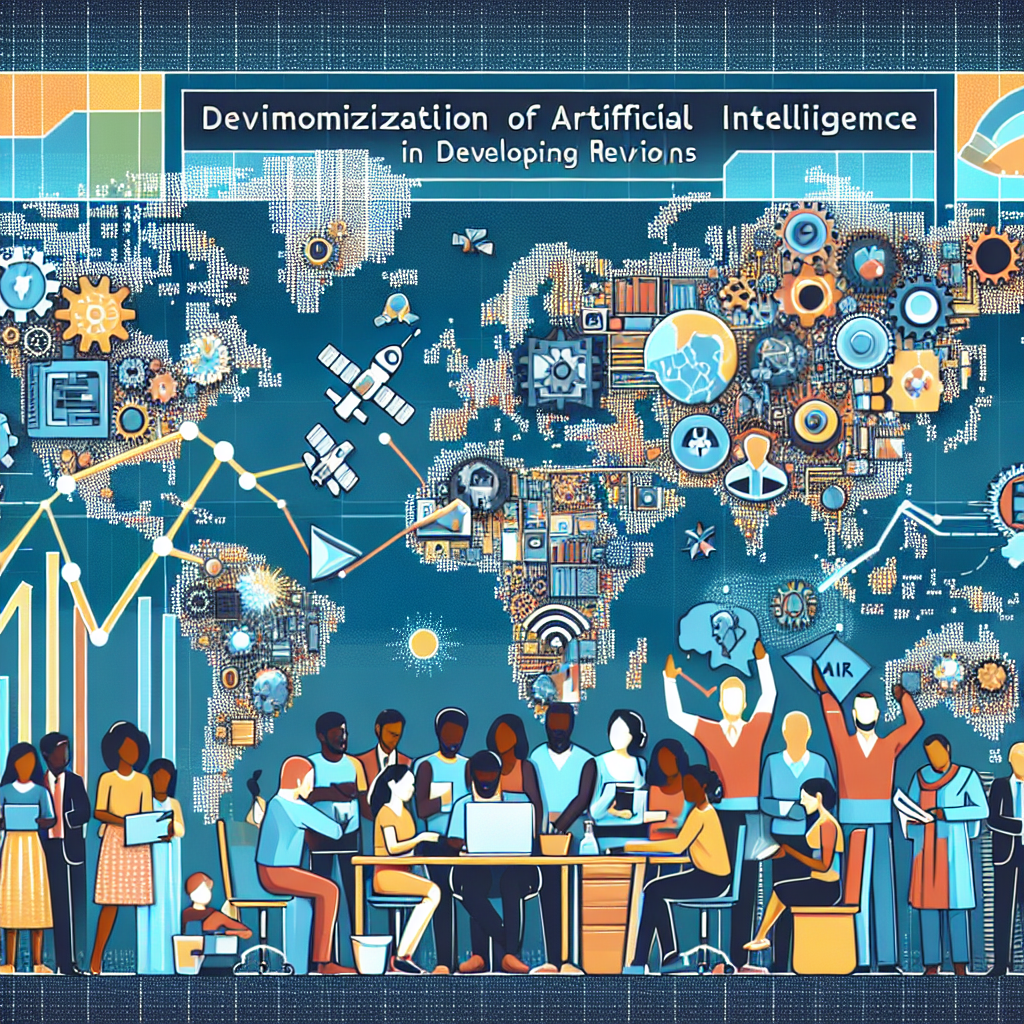In recent years, artificial intelligence (AI) has been rapidly evolving and becoming more accessible to people around the world. This democratization of AI is enabling innovation in developing regions, where access to advanced technology has traditionally been limited. By making AI tools and platforms more affordable and user-friendly, individuals and organizations in these regions are now able to harness the power of AI to drive economic growth, improve healthcare, enhance education, and address social issues.
The democratization of AI is being driven by several key factors:
1. Increased Accessibility: AI tools and platforms are becoming more affordable and easier to use, thanks to advancements in technology and the rise of cloud computing. This means that individuals and organizations in developing regions can now access AI solutions that were previously out of reach.
2. Open Source Software: The availability of open source AI software has also played a significant role in democratizing AI. Open source platforms such as TensorFlow and PyTorch have made it easier for developers to build and deploy AI applications without the need for expensive proprietary software.
3. Education and Training: As AI becomes more mainstream, there is a growing emphasis on providing education and training in AI skills. This includes online courses, workshops, and hackathons that aim to equip individuals in developing regions with the knowledge and skills needed to leverage AI technology.
4. Collaborative Initiatives: Various organizations and initiatives are working to democratize AI in developing regions. For example, the AI for Good Foundation is a non-profit organization that aims to harness the power of AI for social good by providing resources, training, and mentorship to individuals and organizations in underserved communities.
The democratization of AI is already having a significant impact in developing regions, enabling innovation in a wide range of sectors:
1. Healthcare: AI is being used to improve healthcare delivery in developing regions by enabling faster and more accurate diagnosis, personalized treatment plans, and remote monitoring of patients. For example, AI-powered diagnostic tools are helping healthcare providers in rural areas to identify diseases such as malaria and tuberculosis more quickly, leading to better outcomes for patients.
2. Agriculture: AI is also being used to enhance agricultural productivity in developing regions. By analyzing data on weather patterns, soil quality, and crop yields, AI algorithms can help farmers make better decisions about when to plant, irrigate, and harvest their crops. This can lead to increased yields, reduced waste, and improved food security.
3. Education: AI is revolutionizing education in developing regions by providing personalized learning experiences for students. AI-powered tutoring systems can adapt to individual learning styles and pace, helping students to grasp difficult concepts more easily. Additionally, AI can help teachers to identify struggling students early on and provide targeted interventions to support their learning.
4. Social Services: AI is being used to address social issues such as poverty, unemployment, and homelessness in developing regions. By analyzing data on social trends and demographics, AI algorithms can help policymakers and social workers to identify areas of need and allocate resources more effectively. For example, AI-powered job matching platforms can connect unemployed individuals with suitable job opportunities, leading to reduced poverty and increased economic stability.
In conclusion, the democratization of AI is opening up new possibilities for innovation in developing regions. By making AI tools and platforms more accessible, affordable, and user-friendly, individuals and organizations in these regions are now able to leverage the power of AI to drive economic growth, improve healthcare, enhance education, and address social issues. As the democratization of AI continues to evolve, we can expect to see even greater impact in the years to come.
FAQs
Q: What are some challenges in democratizing AI in developing regions?
A: Some challenges in democratizing AI in developing regions include limited access to high-speed internet, lack of awareness and education about AI technology, and cultural barriers to adopting new technologies. Additionally, there may be concerns about data privacy and security, as well as the ethical implications of using AI in certain sectors.
Q: How can organizations in developed regions support the democratization of AI in developing regions?
A: Organizations in developed regions can support the democratization of AI in developing regions by providing funding, resources, and expertise to initiatives that aim to bring AI technology to underserved communities. They can also collaborate with local partners to develop tailored solutions that address the specific needs and challenges of developing regions.
Q: What are some examples of successful AI projects in developing regions?
A: Some examples of successful AI projects in developing regions include the use of AI-powered drones for delivering medical supplies to remote areas, AI-powered chatbots for providing mental health support to underserved populations, and AI-powered agricultural sensors for monitoring soil quality and crop health. These projects demonstrate the potential of AI to drive positive change in developing regions.

